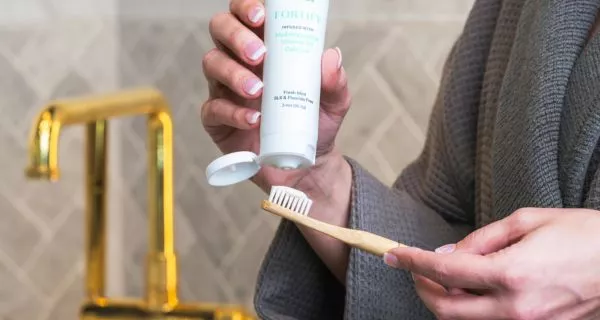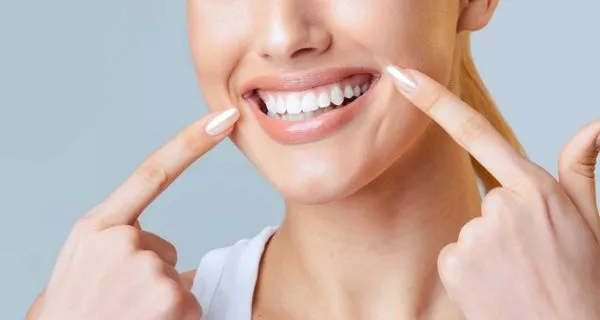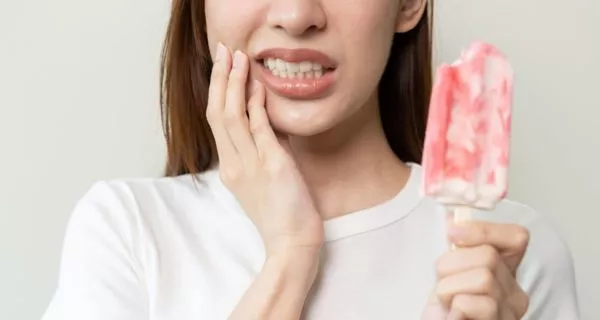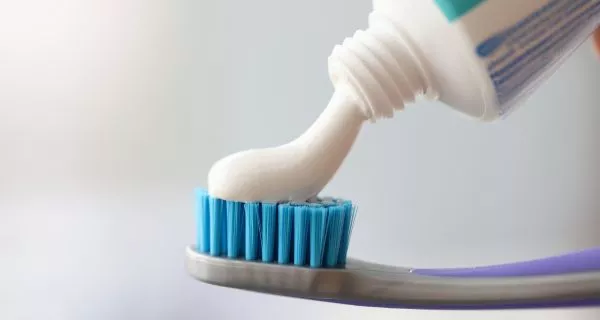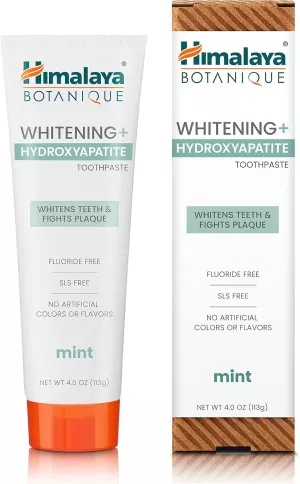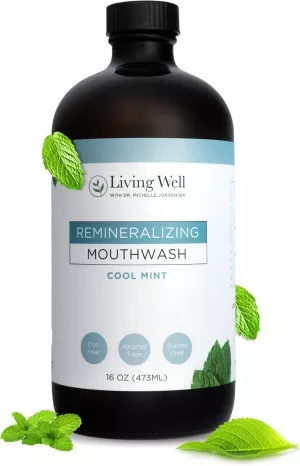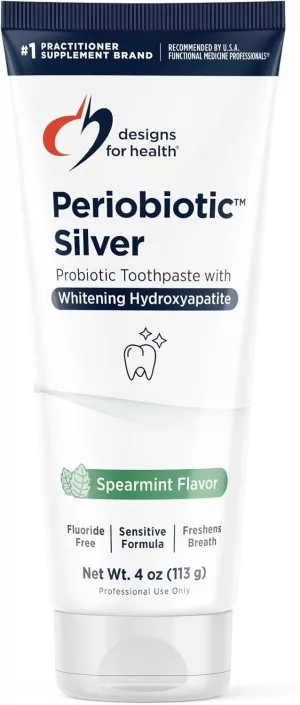Last Updated on: 24th January 2026, 07:42 am
Hydroxyapatite toothpaste helps strengthen and repair tooth enamel naturally, reduce sensitivity, and protect against cavities without harsh chemicals. Unlike regular toothpaste, it works at the microscopic level to remineralize teeth, promoting healthier and stronger smiles over time with daily use.
Every day, scientists work to make products that are safe and easy to use. One important result is hydroxyapatite toothpaste.
In recent years, it has become a popular alternative to regular fluoride toothpaste. Why? Because hydroxyapatite is the same mineral that forms most tooth enamel.
Using it in toothpaste helps protect and repair teeth naturally.
What is Hydroxyapatite?
Hydroxyapatite (HAp) is a natural mineral made of calcium and phosphate. It is very important for our bones and teeth:
- About 65% of our bones are made of hydroxyapatite.
- Your teeth are mostly made of calcium, and hydroxyapatite is the main mineral in their hardest layers:
In teeth, hydroxyapatite forms tiny crystals that create a strong lattice with collagen and other minerals. This structure makes teeth sturdy, hard, and resistant to daily wear and harsh acids.
How does hydroxyapatite support your teeth?
Using hydroxyapatite toothpaste helps repair teeth naturally as it:
- replaces lost minerals
- fills tiny cracks
- strengthens enamel.
Because it works like your teeth’s own material, it is safe and effective for daily use.
How does hydroxyapatite toothpaste work?
Some toothpastes use nano-hydroxyapatite, consisting of very small particles. These tiny particles reach deeper into the enamel and cover weak or damaged areas better than larger particles would.
When you brush with hydroxyapatite toothpaste:
- The particles stick to the tooth surface.
- They fill small weak spots in the enamel.
- They restore lost minerals through remineralization.
Over time, enamel becomes stronger, smoother, and more resistant to daily wear and acids. This is why hydroxyapatite toothpaste, especially with nano-particles, is a gentle and safe alternative to fluoride.
What are the main benefits of hydroxyapatite toothpaste?
Hydroxyapatite toothpaste offers many benefits for daily oral care. It works gently and naturally supports teeth. Let’s look at what it can do.
How does it remineralize and strengthen teeth?
Hydroxyapatite sticks to weak areas of the enamel and helps bring minerals back by:
- Filling tiny damaged spots.
- Hardening enamel.
- Helping teeth stay strong every day.
Can it protect against cavities?
Yes, it can help stop early tooth decay and support your enamel, so cavities are less likely to form. It also:
- repairs early damage.
- reduces plaque.
- helps balance acids that harm teeth.
- makes enamel stronger against new acid attacks.
Does it reduce tooth sensitivity?
Yes, it helps calm sensitive teeth by closing tiny openings in the dentin that lead to the nerve. With regular use, there are positive effects:
- less pain from cold, hot, sweet, or acidic foods
- a light mineral layer protects exposed areas
- fewer signals reach the tooth nerve
- enamel becomes stronger and more protected
It is a good option for people with sensitive teeth or those who want a gentle, fluoride-free choice.
Can it improve tooth appearance?
It does not bleach your teeth, but it can improve your smile.
- It makes the surface smoother.
- It helps reduce small surface stains.
- It gives a soft, natural shine.
- It helps prevent new stains.
What are the disadvantages of hydroxyapatite toothpaste?
Hydroxyapatite toothpaste is very safe, but it has a few limitations. The below points should help you decide if it fits your needs:
- It is a newer ingredient, so there are fewer long-term studies as compared to fluoride.
- It can cost more than regular toothpaste.
- Results may take longer to notice, especially for people with strong sensitivity or existing enamel damage.
- Not all brands use the same amount of hydroxyapatite, and some toothpastes may work better than others.
Who can use hydroxyapatite toothpaste?
Hydroxyapatite toothpaste is suitable for almost everyone. Here is how different groups can benefit:
Children
- safe even if they swallow a small amount
- good for baby teeth and new teeth
- soft taste
- no risk of fluorosis
- often recommended by pediatric dentists
Adults and seniors
- helps with gum recession and exposed dentin
- reduces sensitivity
- strengthens weak or worn enamel
- protects teeth from daily acids and wear
Other people who can benefit
- pregnant or breastfeeding women who prefer to avoid fluoride
- people with a dry mouth
- people with braces
- people with sensitivity after cleanings or whitening
Who should be careful or avoid it?
Hydroxyapatite is safe, but in some cases, extra care is needed:
- People with a very high cavity risk may still need fluoride treatments.
- If your dentist gave you special fluoride products, do not replace them without asking first.
- If you need strong medical enamel treatments, hydroxyapatite may not be enough on its own.
Hydroxyapatite vs fluoride toothpaste: which is better?
Hydroxyapatite and fluoride both protect your teeth, but they work in different ways. Here is a simple comparison:
Hydroxyapatite toothpaste
- repairs weak spots and fills tiny cracks in enamel
- reduces tooth sensitivity
- makes teeth smoother
- gives a natural shine
- very safe, even for kids
- gentle for daily use
- often “all-natural” and free from harsh chemicals
Fluoride toothpaste
- strengthens existing enamel
- helps fight acids and bacteria
- very well studied
- usually cheaper
- the most common toothpaste recommended by dentists
Can you use both?
You don’t always have to choose one.
- Some people use hydroxyapatite in the morning for gentle care and fluoride at night for strong cavity protection.
- Some toothpastes combine both ingredients in one tube.
Both are good options. Choose hydroxyapatite for gentle care and less sensitivity, or fluoride for proven cavity protection. The most important thing is to brush twice a day and floss regularly.
What are the best hydroxyapatite toothpastes available?
There are several toothpastes with hydroxyapatite that are known for quality and effectiveness. They help strengthen and protect enamel gently.
- fluoride-free
- contains nano-hydroxyapatite
- gentle formula, ideal for sensitive teeth
- natural care with hydroxyapatite
- safe for daily use for the whole family
Carifree Fluoride with Hydroxyapatite Toothpaste
- combines hydroxyapatite and fluoride
- dual action: protects against cavities and remineralizes enamel
David’s Sensitive / Whitening Toothpaste
- perfect for sensitive teeth
- polishes enamel and makes it smooth
- contains a high concentration of nano-hydroxyapatite
- recommended to strengthen weakened enamel
Bioniq Classic Biomimetic Toothpaste
- the only toothpaste with 20% hydroxyapatite
- Fluoride and SLS-free
What other dental care products contain hydroxyapatite?
Hydroxyapatite is not only found in toothpaste. You can also find it in other products to protect and repair teeth. Some examples include:
- Mouthwash tablets: Tablets that you dissolve in water or chew to make a mineralizing mouthwash.
- Mouthwashes and rinses: Liquid rinses with hydroxyapatite help strengthen enamel and care for gums.
- Probiotic toothpastes and rinses: Combine hydroxyapatite with good bacteria to protect teeth and balance oral flora.
- Mineral gels: Gels with nano-hydroxyapatite fill tiny cracks and weak spots in the enamel, or for use after whitening treatments.
Hydroxyapatite toothpaste is a modern, safe, and effective alternative to fluoride. It can strengthen enamel, prevent cavities, reduce sensitivity, and improve the natural look of teeth.
It is suitable for children, adults, and people with special dental needs, making it an excellent choice to include in a gentle and healthy daily oral care routine.
If you want to protect your teeth naturally and scientifically, hydroxyapatite toothpaste is one of the best options available today.
Frequently Asked Questions
Who should use hydroxyapatite toothpaste?
Hydroxyapatite toothpaste is great for almost everyone. It is ideal for children, adults with sensitive teeth, people with braces, pregnant or breastfeeding women avoiding fluoride – and anyone who wants gentle, safe, and effective daily dental care. It is also suitable for people with a dry mouth or early enamel wear.
How long does it take to see results?
Most people notice less sensitivity or smoother teeth after a few weeks of daily use. Enamel repair and strengthening take more time; full benefits may appear in a few months if you brush twice a day and maintain good oral hygiene.
Can I use hydroxyapatite toothpaste if I have braces or dental work?
Yes, hydroxyapatite toothpaste is gentle and safe for people with braces, crowns, or dental fillings. It helps protect enamel around brackets and can support remineralization without damaging dental work.
Is there any risk of swallowing hydroxyapatite toothpaste?
The risk is very low. Hydroxyapatite is a natural mineral already in teeth and bones. If you swallow a little toothpaste, it is not toxic, because most hydroxyapatite formulas are safe and do not contain strong chemical agents.
Will hydroxyapatite replace professional dental treatments?
Voice and Search (Q&A)
Is hydroxyapatite eco-friendly?
Most often yes. Many products are free from SLS, parabens or artificial dyes, making them clean and natural.
Are there other hydroxyapatite products besides toothpaste?
Yes, mouthwashes, mineral gels, liquid enamel rinses, effervescent rinse tablets, and probiotic mouthwashes contain hydroxyapatite for extra protection.
Can I use both hydroxyapatite and fluoride toothpaste?
Yes., you can use hydroxyapatite in the morning and fluoride at night or toothpaste with both ingredients.
Share
References
1. Amaechi, B. T., AbdulAzees, P. A., Alshareif, D. O., Shehata, M. A., De Carvalho Sampaio Lima, P. P., Abdollahi, A., Kalkhorani, P. S., & Evans, V. (2019). Comparative efficacy of a hydroxyapatite and a fluoride toothpaste for prevention and remineralization of dental caries in children. BDJ Open, 5(1), 18. https://doi.org/10.1038/s41405-019-0026-8
2. Gascón, A. (2025, July 29). What Is Hydroxyapatite Toothpaste? WebMD. https://www.webmd.com/oral-health/hydroxyapatite-toothpaste
3. Larson, J. (2021, April 7). What is hydroxyapatite toothpaste? Healthline. https://www.healthline.com/health/dental-and-oral-health/hydroxyapatite-toothpaste
4. O’Hagan, W. K., Enax, J., Meyer, F., & Ganss, B. (2021). The use of hydroxyapatite toothpaste to prevent dental caries. Odontology, 110(2), 223–230. https://doi.org/10.1007/s10266-021-00675-4
5. Paszynska, E., Pawinska, M., Enax, J., Meyer, F., Wiesche, E. S. Z., May, T. W., Amaechi, B. T., Limeback, H., Hernik, A., Otulakowska, S. J., Krahel, A., Kaminska, I., Lapinska, A. J., Stokowska, E., & Gawriolek, M. (2023). Caries-preventing effect of a hydroxyapatite-toothpaste in adults: a 18-month double-blinded randomized clinical trial. Frontiers in Public Health, 11, 1199728. https://doi.org/10.3389/fpubh.2023.1199728
-
Dr. Yeidy Carolina Mesa [Author]
DDS Yeidy Carolina Mesa Passionate Dentist | Advocate for Accessible Oral Health Education Graduating from Universidad CES in 2022, I am a dedicated general dentist with a lifelong passion for helping others and making a meaningful impact in the world. My journey into dentistry began at the age of 7, inspired by my own experience with braces and overcoming a fear of the dentist. This personal journey shaped my mission to help patients conquer their own dental anxieties and embrace a healthier,...
View all posts
-
Nayibe Cubillos M. [Medical Reviewer]
Pharmaceutical Chemestry |Pharmaceutical Process Management | Pharmaceutical Care | Pharmaceutical Services Audit | Pharmaceutical Services Process Consulting | Content Project Manager | SEO Knowledge | Content Writer | Leadership | Scrum Master
View all posts
A healthcare writer with a solid background in pharmaceutical chemistry and a thorough understanding of Colombian regulatory processes and comprehensive sector management, she has significant experience coordinating and leading multidisciplina...



